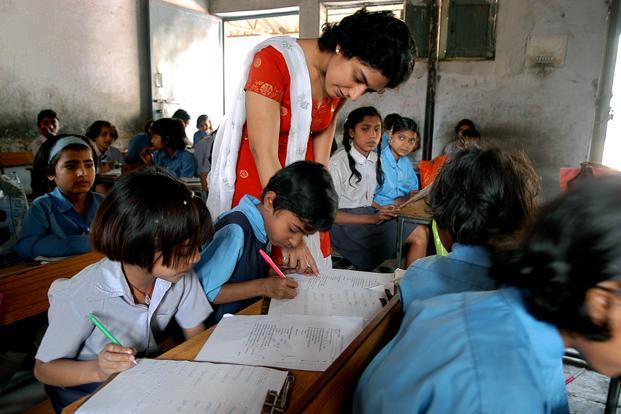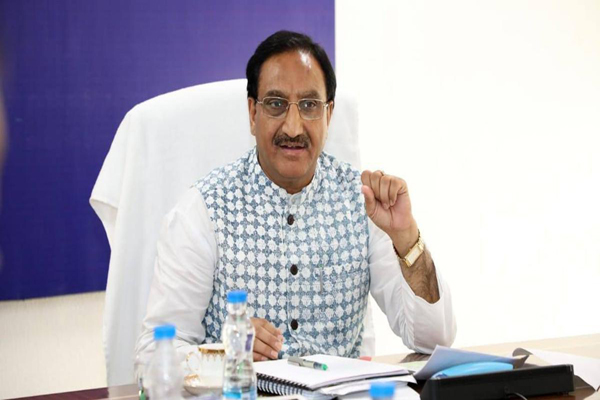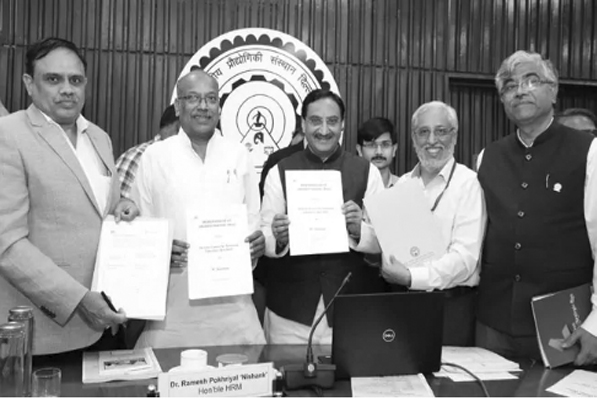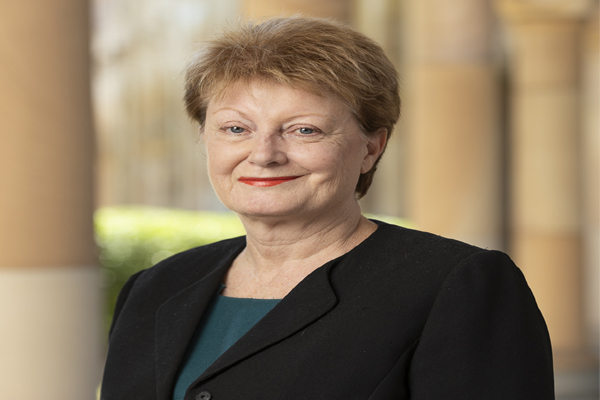The higher education sector is being transformed, whether it be through digital transformation, increasing competition from universities globally as they seek to attract the best minds and talent, or the rapidly changing work environment that is demanding graduates who aren’t just book smart but have critical thinking skills.
In an interview with Elets News Network, Ms. Alison Campbell, Deputy Director- International Marketing and Recruitment, University of Queensland talked about the several initiatives in the learning revolution, helping graduates to excel in the workplace.
With the changing times and maddening race to emulate competitors, what prominent challenges a University of Queensland is faced with?
University Q already holds a place among the world’s top 50 universities. Our successful global profile is the result of forging strategic partnerships across industry, government, sponsorship, philanthropy, alumni, higher education and research. This has afforded University of Queensland a proud reputation for creating change in the world through research achievements such as developing a cancer vaccine that can save an estimated 250,000 lives per year, empowering four million families to create the kind of environments where children can flourish, creating a new drug for nerve pain and chronic inflammatory pain, resulting in Australia’s biggest biotech deal to date.
What are some of the innovations being introduced by University of Queensland for improved learning outcomes among the students?
University of Queensland is changing the way higher education is imagined and experienced. In 2016, UQ announceda five-year program of initiatives at the forefront of the learning revolution, designed to equip UQ graduates to be enterprising and to excel in the new-world workplace.
Game-changing graduates: expanded programs and support to enhance workplace integration and employability, on-campus idea accelerators, multi-disciplinary courses for creating change, and extended opportunities for global experiences and network building.
Student-centred flexibility: more flexible study options, new course options to complement advanced digital learning resources, personalised online learning tracking to provide real-time data and analytics on learning progress, and a move to a trimester system for some programs.
Dynamic people and partnerships: a partnership with students in learning and decision-making, a mentor program, a move toward increasing the engagement of students in our world-class research, a comprehensive professional development program for staff, investment in academic support through digital delivery tools and contemporary content design, and increased partnerships with industry.
An integrated learning environment: the development of the campus precinct; increased and enhanced student spaces for individual and group learning, rest and socialising; renewed IT infrastructure; an on-campus support hub; and an online support hub that offers 24/7 access.
Describe the mission and vision behind the visit of delegation and faculty from UQ coming to India?
UQ has identified India as a strategic country to engage with under the University’s Global Strategy (2018-2021). For sustainable growth and success, we aim to operate with an overarching, holistic and long-term strategy that aligns the University with Indian government, academia and industry, and supports PhD and collaborative research with strategic partners. This visit to India builds on our previous engagements with India, including the establishment of a joint academy of research (UQIDAR) last year.
For more than a century, The University of Queensland has delivered, and continues to deliver, knowledge leadership for a better world. Among our delegation to India are experts well-known in their respective fields who will be delivering masterclasses to prospective students and professional development seminars to high school counsellors and school leaders. Students from 14 high schools across India will engage with these experts through the Create Change Challenge and have the opportunity to pitch their own ideas for Sustainable innovation for future cities.
There are also a number of student recruitment focused events taking place in New Delhi, Bengaluru and Mumbai to enable prospective Indian students interested in studying abroad to engage with UQ academics and professional staff who will answer their questions.
Why UQ has chosen India for their student recruitment drive?
In 2018 UQ Chancellor Mr Peter Varghese AO called for education to be a ‘flagship sector’ as Australia seeks to lift trade and investment ties with India. Mr Varghese, the former Australian High Commissioner to India, made the call in his An India Economic Strategy to 2035 report, released by the Australian Government in July. It contains 90 recommendations to transform Australia’s relationship with India and take the economic partnership to a new level.
Mr Varghese’s report says education should be the flagship sector because of a combination of Australian expertise, the scale of India’s education deficit and the way in which an education and training demand weaves its way through virtually every sector of the Indian economy.
India is currently Australia’s largest source of skilled migrants and there are attractive post-study work opportunities.
UQ’s vision for 2020- the global strategy in the face of a digital revolution and increasing competitiveness. What steps have been undertaken to achieve that vision by the university?
The UQ Strategic plan sets the direction for UQ as we pursue our vision of providing ‘knowledge leadership for a better world’. UQ recognises that this period will be challenging as the University adapts to a rapidly changing environment. UQ is commitment to remaining a comprehensive, research intensive university, while emphasising the importance of collaboration, diversity and partnered innovation as a critical means of solving complex global challenges. The Strategic Plan has identified three long term objectives with six medium term strategic focus areas. These include:
- Transforming our student experience through a flexible, integrated and partnered learning environment.
- Enhancing our high quality research by improving our capacity to collaborate to achieve greater impact.
- Building engaged and strategic partnerships with a broad range of local and global networks.
- Committing to activities that attract, support and retain a diverse and inclusive community of high achieving staff and students.
- Building an agile, responsive and efficient University operation.
- Diversifying our income streams and managing our resources to establish a sustainable financial base.
- Transforming our students into game-changing graduates will ensure that they are not only prepared to succeed in their chosen pathway, but will also provide the leadership necessary to create change.
Encouraging entrepreneurship and research in India, how UQ will help Indian students broaden their horizons?
UQ supports entrepreneurs to generate and action ideas in response to identified needs and opportunities through UQ ventures. Students, staff and alumni have access to a suite of programs to build their skills in a hands-on environment. A wide range of events and activities are run across the year, and support is provided from idea generation through to market validation, and from launching a startup to scaling it up. By facilitating programs that increase soft skills such as teamwork, problem-solving, agile thinking and resiliency to develop an entrepreneurial mindset, students can increase their overall employability prospects.
In 2018, UQ signed a historic agreement partnering with the Indian Institute of Technology Delhi (IITD) to launch a joint Academy of Research (UQIDAR). UQIDAR will pave the way for students and academics to partner on projects addressing some of the most pressing issues affecting India, Australia and global communities. Supported by generous scholarship opportunities, the Academy of Research encourages students from India and Australia to take advantage of each other’s world-class facilities and resources, and to develop culturally diverse research networks. Open to all disciplines, the partnership will enable students to gain a global qualification from both IITD and UQ in four years.
What are your thought regarding India as next Higher Education Destination?
India’s higher education landscape is large and complex, with over 760 universities that are run by various national public, state-owned, and privately owned and operated governing bodies. Indian universities, even elite institutions, do not feature in the top 100 universities in global rankings.
India and Australia have complementary strengths in higher education. Australia’s higher education market although very small in comparison boasts a very high quality offering. While the country is home to only 39 universities, six of these institutions are ranked in the global top 100. Moreover, the system in Australia is highly regulated by the Australian Government in order to maintain high standards. The curriculum in Australia is very agile and constantly reviewed and updated to match ever changing industry requirements.
Australian universities, including UQ, have increased their engagement with India over the past decade, fostering partnerships in research, education initiatives, joint publications, and student-staff exchanges. Partnerships like UQIDAR seek to help close the disparity between countries through skills and knowledge exchange, helping to bolster the excellent work already being done in India’s quality institutions.





























